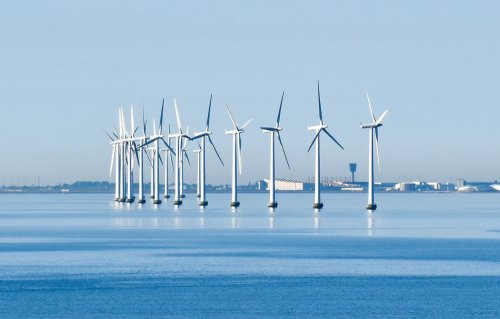Emissions reductions for 2023 and the first half of this year amounted to a historic 16.5%, and compared to emissions from plants in 2005, the reduction was 47.6%.
This became known from the 2024 Carbon Markets Report published by the European Commission.
EU analysts have assessed the functioning of the EU Emissions Trading System (EU ETS) as stable and effective. They reported the following key points about it in 2023:
- The European ETS marked a historic reduction in emissions from stationary installations by 16.5% at the expense of the energy sector.
- Production of electricity from renewable sources (primarily wind and solar energy) has increased significantly.
- The tendency to replace coal with gas in electricity production has resumed.

How much did we reduce emissions?
How much emissions have decreasedAs a result, GHG emissions from installations have decreased by approximately 47.6% compared to 2005 and are on track to meet the 2030 target of 62%.
At the same time, the European Commission noted that in 2023 intra-European aviation emissions increased by approximately 10% compared to the level of 2022. Officials attribute this to an increase in the level of activity in this sector.
The EU claims that the reduction of emissions in the EU ETS in 2023 was facilitated by a stable and reliable signal regarding prices for carbon quotas. According to them, the market stability reserve continues to withdraw excess quotas and cancel quotas at its disposal.
"Such emission trends confirm the efficiency and effectiveness of the EU ETS as one of the main political incentives for decarbonization of the European economy," the European Commission says.
How much money has been accumulated and where it will be spent
The EU recalled that the EU ETS revenues remain an important source of funding for the climate transition. In 2023, €43.6 billion was collected.
They will be primarily distributed to the national budgets of Member States to combat climate change, as well as to the ETS Innovation Fund, the ETS Modernization Fund and the Resilience and Recovery Fund for the REPowerEU plan.
The total revenue generated by the EU ETS to date exceeds €200 billion, according to the European Commission.
The main executive body of the EU also recalled that in 2023 the EU ETS was revised as part of the Fit for 55 legislative package. This revision has now fully entered into force, and its implementation has already begun.
Officials said that the emissions cap for 2024 was reduced by 90 million allowances, and the scope of the system now covers the share of emissions from maritime transport in the EU.
As EcoPolitics previously reported, the COP29 Conference of the Parties approved new rules for the creation of a global carbon market.





